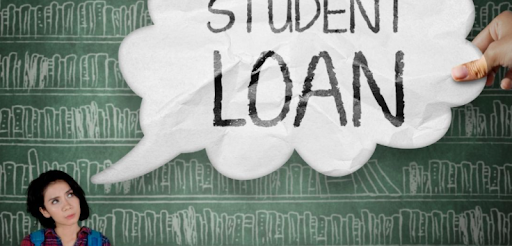
Student loans can be a great way to finance your education, but it’s essential to understand the basics before you borrow. Here are things you should know before you apply for one:
Points To Consider Before Applying For Student Loans:
1. Types of Student Loans
There are a few different types of student loans: federal loans, private loans, and state loans.
Federal loans are offered by the government, while private loans are provided by banks or other lenders and often have higher interest rates than federal loans.
On the other hand, individual states offer state loans and lower interest rates than federal or private loans. It’s essential to understand the different types of student loans available to you to find the best option for your needs.
Talk to a financial advisor if you have any questions about student loans.
2. Only Borrow What You Need
As a student, you only need to borrow what you need. You don’t have to take out the total loan amount offered to you. Take out only what you need, and you’ll be able to manage your finances better.
Remember, you don’t have to borrow the total amount offered to you.
3. Understand the Interest rates to pay
You need to understand as a student that you will have to repay the loan with interest. When the interest rate is higher, you will have to pay back more. Using a student loan repayment calculator comparing interest rates from different lenders can help you figure out the best date to pay off your loan.
Here is another student loan calculator for you to try.
Make sure you know the interest rates before signing any paperwork. if you’re unsure of what to do, you can check https://www.ocbc.com/personal-banking/loans/student-loans.page for more information.

Besides, they might help you get a lower interest rate or a more extended repayment period by choosing a different type of loan. Do your research and compare your options before making a decision.
4. Know what you can use education loan for
A tuition fee loan can be used for various things, including tuition, room and board, books, and other school-related expenses.
It’s important to know what you can and cannot use the money for before taking out a loan. Otherwise, you may end up owing more money than you originally planned.
5. Be aware of your repayment options.
When it comes time to start paying back your student loan, you will have several different repayment options to choose from. Make sure you understand all of your options before making a decision.
You may be able to choose between monthly payments or a lump sum payment. You may also choose between a fixed interest rate or a variable interest rate. Be sure to weigh the pros and cons of each option before deciding.
It’s also important to be aware of the consequences of not paying back your loan. If you miss a payment, you may end up with late fees or penalties.
You may also see your interest rate increase, which will make it more challenging to pay back your loan. It’s crucial to stay on top of your payments to avoid getting into financial trouble.
If you’re having trouble making your monthly payments, be sure to contact your lender as soon as possible.
They may be able to help you come up with a repayment plan that works for you. Don’t wait until you’re in over your head before reaching out for help.


